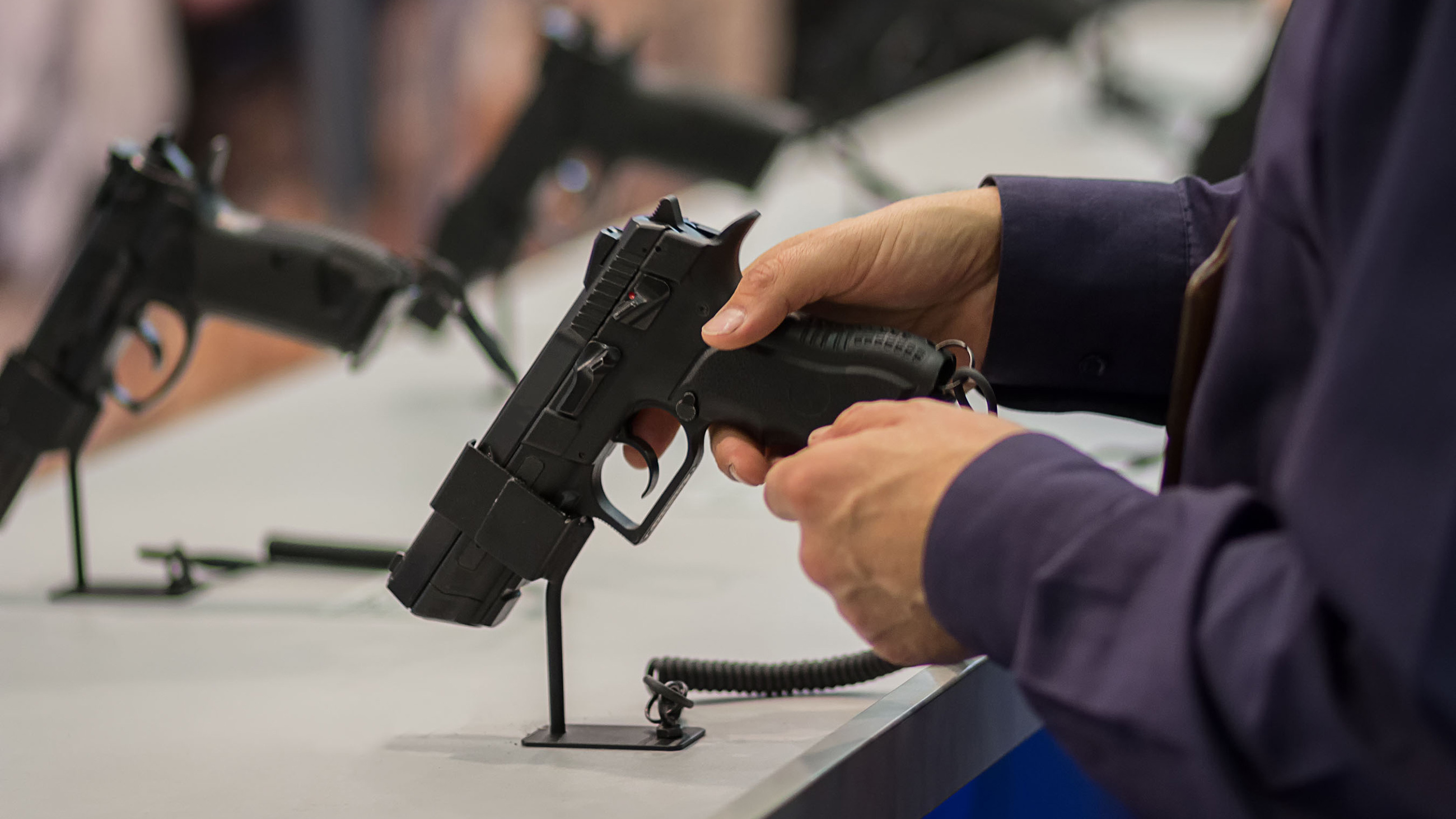Minding the Gun Law Gap
Gun control discussions hardly took center stage after last Friday’s Fort Lauderdale mass shooting.
Once authorities quelled the chaos at the airport site, much of the U.S. media turned to news about President-elect Donald Trump, a winter storm that mangled traffic on the East coast, and a construction accident in Yonkers, New York.

But five people were killed and six injured as a direct result of the Jan. 6 shooting. The suspect reportedly told authorities in Alaska in November that he heard voices telling him to commit acts of violence. Local police took away his handgun at the time but returned it to him a month later.
Mass shootings provoke questions about state and federal firearms policy. But it’s an exaggeration to claim that we have insufficient data to determine which measures could be most effective at curbing gun violence.
The Harvard Injury Control Research Center has some answers. More available guns lead to more suicides and to more homicides of civilians and police, according to the organization’s review of research.
And a set of graphics published online Tuesday by the New York Times reveals a remarkable overlap of public support for various gun control measures and their effectiveness as judged by a panel of 32 experts, including criminologists, public health experts and legal scholars who conduct gun policy research published in respected academic journals.
The sweet spots include barring sales to all violent criminals and requiring universal background checks for gun buyers.
Federal law already calls for universal checks on purchases of handguns in gun stores, pawn shops and other licensed dealers, but the legislation doesn’t cover so-called private firearm sales and exchanges, which include guns passed down in families, firearms sold at gun shows and guns sold online.
More than a dozen states along with Washington, D.C., however, currently have regulations designed to close that gap, requiring background checks on private sales and exchanges of handguns, handguns and assault weapons, or all guns.
And according to a study published in the Annals of Internal Medicine in early January, those laws are working.
Part of the study, a nationally representative survey in 2015 of 1,600 adult civilian gun owners, focused on respondents who reported getting a new gun in the past two years. The analysis revealed that 26 percent of those owners living in states with private sale regulations still managed to obtain their firearm without undergoing a background check. But in states without such regulations, transactions were even easier. A total of 57 percent got their guns without a background check.
It’s noteworthy that these findings are the first in more than 20 years to update data on firearms acquisition and background checks — and the first to directly ask gun owners about background checks, says study leader Matthew Miller, a professor of epidemiology and health sciences at Northeastern University. He is also co-director of the Harvard Center for Injury Control Research.
“We live in a country where there is a paucity of information about this agent of death, which claims than 30,000 people a year, about the same number of people who die of motor vehicle crashes and about the same number who die from unintentional opioid overdoses,” Miller says. “But when we talk about non-firearms related agents of death, we know a ton of information about the causes.”
Legal maneuvers suppressed federal funding for gun research for nearly two decades starting in 1996. President Barack Obama took action in 2013 to undo that situation, but little has changed.
Could background checks have prevented the Fort Lauderdale mass shooting? Yes, Miller says, if Alaska excluded people with reported psychosis from obtaining or keeping guns.
And that doesn’t sound too crazy.










Comments are automatically closed one year after article publication. Archived comments are below.
I wrote the system that interfaces the NICS check with the Department of Human Services for our state…. and uh, let me just say, I don’t have a lot of faith in the process and I have no idea what “if Alaska excluded people with reported psychosis from obtaining or keeping guns” is supposed to mean.
We flag civil commitments, not reported psychosis, whatever that means.
I am also a little concerned about banning the mentally ill from owning a gun. In rural areas, the idea that if you seek help you can no longer go deer hunting – is not going to fly. It is a helluva way to chase people away from seeking treatment.